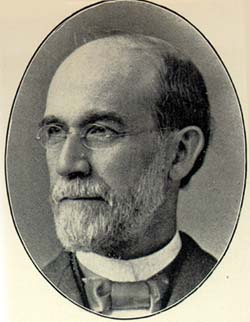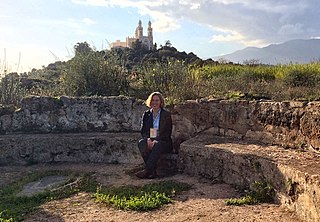Related Research Articles
Relativism is a family of philosophical views which deny claims to objectivity within a particular domain and assert that valuations in that domain are relative to the perspective of an observer or the context in which they are assessed. There are many different forms of relativism, with a great deal of variation in scope and differing degrees of controversy among them. Moral relativism encompasses the differences in moral judgments among people and cultures. Epistemic relativism holds that there are no absolute principles regarding normative belief, justification, or rationality, and that there are only relative ones. Alethic relativism is the doctrine that there are no absolute truths, i.e., that truth is always relative to some particular frame of reference, such as a language or a culture. Some forms of relativism also bear a resemblance to philosophical skepticism. Descriptive relativism seeks to describe the differences among cultures and people without evaluation, while normative relativism evaluates the morality or truthfulness of views within a given framework.

Haverford College is a private liberal arts college that is located in Haverford, Pennsylvania. It was founded as a men's college in 1833 by members of the Religious Society of Friends (Quakers), and began accepting non-Quakers in 1849. It then became coeducational in 1980.

Bryn Mawr College is a women's liberal arts college in Bryn Mawr, Pennsylvania. Founded as a Quaker institution in 1885, Bryn Mawr is one of the Seven Sister colleges, a group of elite, historically women's colleges in the United States, and the Tri-College Consortium along with Haverford College and Swarthmore College. Finally, it is one of 15 Quaker colleges in the United States. The college has an enrollment of about 1,350 undergraduate students and 450 graduate students. It was the first women's college to offer graduate education through a PhD.
The Seven Sisters are a group of seven highly selective liberal arts colleges in the Northeastern United States that are historically women's colleges: Barnard College, Bryn Mawr College, Mount Holyoke College, Smith College, and Wellesley College are still women's colleges. Vassar College is currently a coeducational college and Radcliffe College was absorbed in 1999 by Harvard College.
Penn Valley is an unincorporated community located within Lower Merion Township, Pennsylvania, United States. Penn Valley residents share a zip code with Merion, Narberth, or Wynnewood because the community does not have its own post office. However, Penn Valley is a distinct community whose civic association demarcates its boundaries with iconic signs featuring William Penn and a farmhouse in blue or red on white, dating from 1930.

The Tri-College Consortium is a collaboration among three private liberal arts colleges in the Philadelphia suburbs: Bryn Mawr College, Haverford College, and Swarthmore College. The consortium allows students to cross register for courses at the other colleges. Bryn Mawr and Haverford enjoy an especially close relationship. The two schools share a student newspaper and radio station, and they have a fairly integrated student life. A bus transports students from campus to campus.

Clark Richard McCauley is an American social psychologist who is Research Professor of Psychology and co-director of the Solomon Asch Center for Study of Ethnopolitical Conflict at Bryn Mawr College.

The Quaker Consortium is an arrangement among three liberal arts colleges, Bryn Mawr College, Haverford College, and Swarthmore College, and one research university, the University of Pennsylvania, all located in the greater Philadelphia area. The arrangement allows for their students to enroll in courses at the other schools of the Consortium.

Joseph Zalman Margolis was an American philosopher. A radical historicist, he authored many books critical of the central assumptions of Western philosophy, and elaborated a robust form of relativism.
The Philadelphia College Radio Collective is a group of college radio stations that combine forces to provide students and Philadelphians with information about upcoming shows around the area. The collective also has a blog that reviews albums and live concerts.

Addison Hutton (1834–1916) was a Philadelphia architect who designed prominent residences in Philadelphia and its suburbs, plus courthouses, hospitals, and libraries, including the Ridgway Library and the Historical Society of Pennsylvania. He made major additions to the campuses of Westtown School, George School, Swarthmore College, Bryn Mawr College, Haverford College, and Lehigh University.

Michael Krausz is a Swiss-born American philosopher as well as an artist and orchestral conductor. His philosophical works focus on the theory of interpretation, theory of knowledge, philosophy of science, philosophy of history, and philosophy of art and music. Krausz is Milton C. Nahm Professor of Philosophy at Bryn Mawr College, and he teaches Aesthetics at the Curtis Institute of Music. He has taught at University of Toronto and has been visiting professor at American University, Georgetown University, Oxford University, Hebrew University of Jerusalem, American University in Cairo, University of Nairobi, Indian Institute of Advanced Study, and University of Ulm, among others. Krausz is the co-founder and former Chair of the fourteen-institution Greater Philadelphia Philosophy Consortium.

Priscilla T. Neuman Cohn Ferrater Mora was an American philosopher and animal rights activist. She was Emerita Professor of Philosophy at Pennsylvania State University, associate director of the Oxford Centre for Animal Ethics, and co-editor of the centre's Journal of Animal Ethics.
Joseph Wright Taylor is best known for being the financial catalyst for the founding of Bryn Mawr College. He was a graduate of the University of Pennsylvania, a physician and a member of the Society of Friends, and originally wanted the college to promote the ideals of the Quaker religion and the advancement of women's education. In 1878 he paid $53,500 for forty acres in Bryn Mawr, Pennsylvania.

Phoebe Starfield Leboy was an American biochemist and advocate for women in science.
Frances May Witherspoon was an American writer and activist, co-founder with Tracy Dickinson Mygatt of the War Resisters League, and executive secretary of the New York Bureau of Legal Advice, a forerunner of the American Civil Liberties Union.

Zvezdelina Entcheva Stankova is a professor of mathematics at Mills College and a teaching professor at the University of California, Berkeley, the founder of the Berkeley Math Circle, and an expert in the combinatorial enumeration of permutations with forbidden patterns.
Yilun Dianna Xu is a mathematician and computer scientist whose research concerns the computational geometry of curves and surfaces, computer vision, and computer graphics. She is a professor of computer science at Bryn Mawr College where she chairs the computer science department.

Catherine Mary Conybeare is an academic and philologist and an authority on Augustine of Hippo. She is currently Leslie Clark Professor in the Humanities at Bryn Mawr College in Pennsylvania.
References
- ↑ "About the GPPC". The GPPC. 2022-11-09. Retrieved 2023-04-11.
- ↑ "About the GPPC". The GPPC. 2022-11-09. Retrieved 2023-04-11.
- ↑ Krausz faculty page. Archived 2010-10-08 at the Wayback Machine Philosophy Department website. Bryn Mawr College. Retrieved on 2011-01-04.
- ↑ Margolis, J., M. Krausz, R.M. Burian (1986). "Preface" in Rationality, Relativism, and the Human Sciences. Dordrecht: Nijhoff. p. vii. ISBN 90-247-3271-9.
- ↑ Margolis, J., M. Krausz, R.M. Burian (1986). "Preface" in Rationality, Relativism, and the Human Sciences. Dordrecht: Nijhoff. p. vii. ISBN 90-247-3271-9.
- ↑ Curriculum Vitae. Joseph Margolis. Pragmatism Cybrary. Retrieved 2001-01-05.
- ↑ 2008–2009 GPPC Program Events. Philosophy Department. Swarthmore College. Retrieved on 2011-01-04.
- ↑ The Greater Philadelphia Human Studies Council. Provost's Office. Swarthmore College. Retrieved on 2011-01-05.
- ↑ "About the GPPC". The GPPC. 2022-11-09. Retrieved 2023-04-11.
- ↑ Margolis, Joseph (2010). Pragmatism's Advantage: American and European Philosophy at the End of the Twentieth Century. Stanford: Stanford University Press. p. 163. ISBN 978-0-8047-6268-7.
- ↑ Caputo, John D. (2000). More Radical Hermeneutics. Bloomington: Indiana University Press. p. 275. ISBN 0-253-21387-8.
- ↑ Romano, Carlin (7 December 1998). "Sticking to his Guns on Film and Philosophy" in The Philadelphia Inquirer. p. C05.
- ↑ Carvalho, John M. "Contributions to Professional Societies." Curriculum Vitae. Retrieved on 2011-01-06.
- ↑ Katz, Claire Elise. "Papers/Presentations." Curriculum Vitae. Archived 2010-06-12 at the Wayback Machine p. 7. Retrieved on 2011-01-06.
- ↑ Carvalho, John M. "Contributions to Professional Societies." Curriculum Vitae. Retrieved on 2011-01-06.
- ↑ Godfrey, Joseph J. "Professional Activities and Memberships." Curriculum Vitae. Retrieved on 2011-01-06.
- ↑ "Discussion Groups". The GPPC. 2022-11-09. Retrieved 2023-04-11.
- ↑ Krausz, M., series editor. Greater Philadelphia Philosophy Consortium Series. Penn State Press. Retrieved on 2011-01-05.